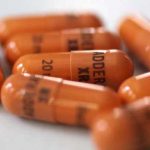- What Is A Lethal Dose Of Adderall?
- Signs Of An Overdose
- Symptoms Of An Overdose
- Risk Factors
- Treatment
Adderall abuse, including snorting, smoking, or injecting, as well as taking the drug in a manner not prescribed by a doctor, can increase the risk of overdose.
Adderall (and Adderall XR) is the brand name for the combination of amphetamine and dextroamphetamine. This central nervous system stimulant is used to treat narcolepsy and attention deficit hyperactivity disorder (ADHD).
As a prescription stimulant, Adderall increases the activity of dopamine, serotonin, and norepinephrine in the brain. This can help you focus and reduce impulsivity but it can also come with side effects like weight loss, nausea, and stomach pain.
Adderall is classified as a schedule II controlled substance by the Drug Enforcement Administration (DEA) and Food and Drug Administration (FDA), which means it has a high potential for abuse and overdose.
What Is A Lethal Dose Of Adderall?
A lethal dose of the ADHD medication is usually between 20-25 mg per kilogram of your weight. This means that a lethal dose for someone who is 70 kg or 154 pounds would be around 1400 mg. This is about 25 times more than the highest prescribed dose.
However, the amount of Adderall use that could lead to an overdose can change from person to person. It can depend on how much you ingested as well as your tolerance for the drug.
Signs Of An Adderall Overdose
There are some observable signs you can look out for that can signal an Adderall overdose, including:
- rapid breathing
- uncontrollable shaking
- mental health issues like anxiety or psychosis
- fainting
- tremors or seizures
- loss of consciousness
- twitching or spasms
- vomiting
- dilated pupils
Symptoms Of An Adderall Overdose
Symptoms indicate side effects of Adderall that others can’t see but the person may be experiencing. Some of the most common symptoms of an Adderall overdose include:
- rapid heart rate
- high blood pressure
- irregular heartbeat
- abdominal cramping
- blurry vision
- hyperactivity
- nausea
- dark urine
- lack of appetite
Adderall Overdose Risk Factors
Whether someone experiences an overdose or not can differ from person to person. It can depend on a number of risk factors, including:
- the dosage of adderall (the higher the dose, the higher the risk of overdose)
- how long you’ve been taking/abusing the drug (the more you abuse the drug, the higher your overdose risk)
- whether you’re taking Adderall with or without a prescription (many college students abuse Adderall without a prescription for improved concentration)
- your overall health
- if you’re mixing Adderall with alcohol, illicit drugs, or other prescription drugs
- if you have a history of substance abuse
Treating An Adderall Overdose
Treatment for an Adderall overdose starts with making an emergency call and then going from there.
Call 911
If you or a loved one is experiencing an Adderall overdose, call 911 immediately. An overdose can be life-threatening.
When medical professionals arrive, they will likely want to know:
- the person’s age
- their condition
- the last time they used Adderall
- how much they took
Treatment At The Hospital
Once the paramedics take you or your loved one to the hospital, healthcare providers will likely run multiple tests to determine if you’re at risk for a heart attack, stroke, seizure, or kidney or liver failure. If any of these health conditions are an issue, they will treat them immediately.
Adderall Detox
Once you’re stable, and if you’re looking to begin recovery for Adderall addiction, detox will likely be the first step in addiction treatment.
During detox, a healthcare professional may set up a tapering schedule to help you slowly come off the drug. You will likely take a lower and lower dose of the drug until you can quit without experiencing any severe withdrawal symptoms.
Once detox is complete, you can move on to an inpatient or outpatient treatment program.
If you’re struggling with Adderall abuse or another form of drug abuse, Northeast Addiction Treatment Center offers a variety of addiction treatment options including medication-assisted treatment, specialized therapy, and other outpatient services.
To find out how we can help you on your recovery journey, please call our helpline today.
Sources
Written by
Northeast Addition Editorial Team
©2024 Northeast Addition Center | All Rights Reserved
This page does not provide medical advice.




